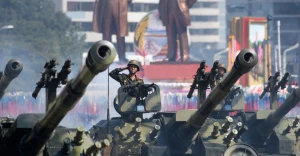
North Korea-Russia relations: Weapons exchange for military cooperation
It's widely known that Moscow and Pyongyang share mutual support. Russia seeks North Korea's weapons, while North Korea requires funds and sustenance for its hungry population. Vladimir Putin and Kim Jong Un also share a common adversary - the "imperialist west," led by the USA
In this piece, we explore why North Korea is one of the most secretive nations globally, its connection with Russia, and the weaponry North Korea might supply to support Russia in the war in Ukraine.
Article overview:
- North Korea's history: From Korean division to Kim Jong Un
- Military strength of North Korea: Weapons in DPRK's arsenal
- DPRK-Russia cooperation: Dictators unite for weapon exchange
- North Korean weapons for Russia: What gets transferred?
North Korea's history: From Korean division to Kim Jong Un
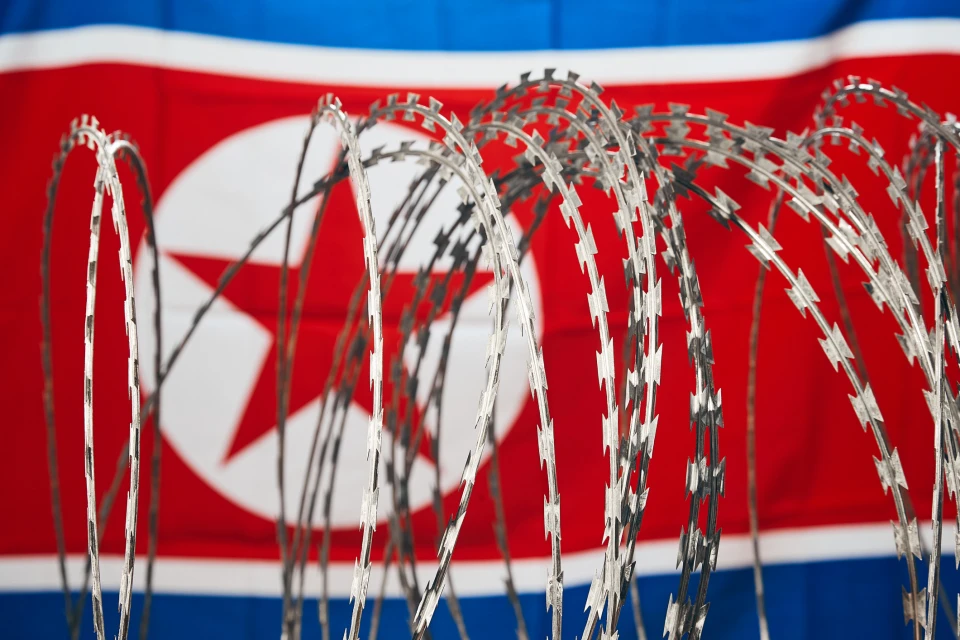
Photo: Getty Images
North Korea, while being only one-fifth the size of Ukraine, is home to over 25 million people. In contrast, South Korea, with an area six times smaller than Ukraine, boasts a population exceeding 51 million. Both Koreas demonstrate significant human potential, enabling the totalitarian North and democratic South to leverage opportunities for political and economic pursuits.
But how did the once great Korea become divided into two, which are now completely unlike each other?
The division of Korea into two distinct entities can be traced back to the actions of the Russian Empire and later the USSR. The Joseon dynasty ruled a unified Korea from the late 14th to the early 20th century. Toward its end, the monarchy's power waned, leading to discontent among those seeking reforms. Exploiting this situation, Korea's neighbors, initially aligning with the Qing dynasty, eventually fell under the sway of the Japanese Empire after the Qing dynasty's defeat in a war with Japan.
The Japanese, expanding actively in the 19th century, targeted neighboring territories, including Korea and the Russian Empire. Japan's victory over Russia in 1904 freed them from Russian resistance. Subsequently, in 1910, Korea was annexed by the Japanese Empire and remained under their control until the conclusion of World War II. During this period, the Japanese enforced an assimilation policy, imposing the Japanese language and names on Koreans and advocating a singular "Japanese-Korean ethnicity."
The conclusion of World War II might have occurred differently had Joseph Stalin promptly adhered to the Yalta Conference terms. However, Stalin delayed the Red Army's transfer to the Far East. The USSR initiated an operation against Japanese forces in Manchuria and Korea on August 8, following the U.S.'s nuclear bombing on August 6. While Japan surrendered on September 2, the actual war in Korea was just commencing.
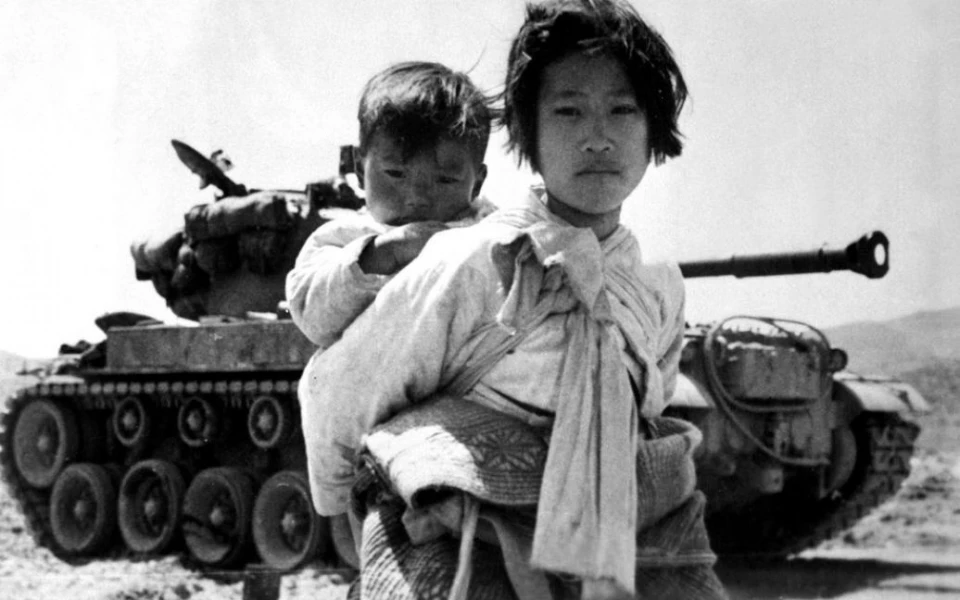
photo: Wikipedia
After World War II, Korea was split along the 38th parallel into North and South zones influenced by the USSR and the United States, replacing the ousted Japanese. This division continues to impact the region today. On August 15, 1948, the Republic of Korea (ROK) was established in the South, with Rhee Syngman as the first inaugural president. Just a month later, on September 9, the Democratic People's Republic of Korea (DPRK) was formed in the North, led by Kim Il Sung, the grandfather of Kim Jong Un, North Korea's current leader. Both Koreas claimed exclusive legitimacy, sparking a forceful struggle over control of the peninsula.
In 1950, a brutal war erupted, resulting in the deaths of approximately 5 million Koreans over three years. The North initiated the conflict on June 25, 1950, seizing the South's capital, Seoul, and advancing deep into the peninsula. Responding swiftly, the United Nations, led by the United States, deployed peacekeeping troops to aid the South. By October, Seoul was retaken, and the North's capital, Pyongyang, fell. Kim Il Sung and his government sought refuge in China. Although the North Korean army faced defeat, the intervention of the Communist Chinese army pushed back UN forces, recapturing Seoul in January 1951. In March of the same year, UN forces regained the South's capital, pushing North Korean troops to the modern demilitarized zone. The front line stabilized, eventually becoming the border between the two states in 1953.
After the war, living standards improved faster in the North than in the South. This was due to the aggressive Soviet model of building heavy industry and collectivizing peasants. However, by the 1960s, the market economy began to outpace the planned pseudo-communist one. After Stalin's death and Mao Zedong's independent course in China, Kim Il Sung decided to close the country off from foreign influences. He focused on promoting the cult of the "Great Leader" and the concept of Juche, meaning "self-reliance" or isolation. This slogan replaced Marxism-Leninism as the state ideology, reinforcing Kim Il Sung's cult of personality and absolute power in the DPRK.
In 1994, after Kim Il Sung's death, his son Kim Jong Il assumed power. The country's economy continued to suffer under the leader's policies, leading to a famine in the late 1990s. Several million Koreans died of malnutrition. Despite these hardships, North Korea intensified its military capabilities, adhering to Songun, the "military first" policy. This militarization, where almost the entire population is connected to the army, has made North Korea one of the world's poorest and most militarized nations. A decade ago, the per capita GDP in the DPRK was around $500 (compared to South Korea's $30,000). Although it has slightly increased to $1,000, South Korea's per capita GDP is now $35,000.
In 2011, Kim Jong Un assumed power as the third representative of the Kim dynasty. A decade ago, North Korea anticipated that the eldest son, Kim Jong-nam, would succeed Kim Jong Il. However, due to falling out of favor, Kim Jong-nam lived in exile until 2017 when he was killed by North Korean special services in Malaysia.
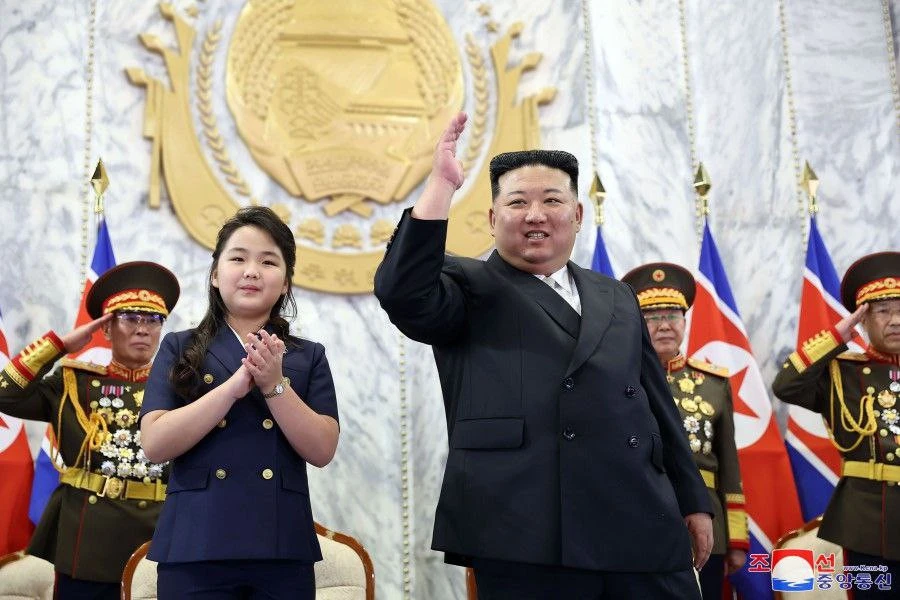
When Kim Jong Un took control of the Democratic People's Republic of Korea (DPRK), he was just 28 years old. There were expectations from democratic nations that this young leader, raised in the modern world (rumor has it, his father took him to Disneyland in disguise during his childhood), might bring about change. Nevertheless, Kim Jong Un chose to uphold the principles of his grandfather and father, maintaining a continuation of the same aggressive policies.
He kept advancing nuclear and missile programs, causing heightened tensions and triggering new sanctions in the region. However, in 2018, there was a brief thaw when North Korea participated in the Olympic Games, and Kim Jong Un met with the leaders of South Korea and the United States with President Donald Trump. However, the situation soured again as North Korea resumed missile testing, causing global concern. For instance, on May 31, 2023, an air alert was declared in Seoul due to North Korea launching a space launch vehicle. Moreover, Kim Jong Un voided non-aggression pacts with South Korea and canceled the peninsula's denuclearization treaty. Additionally, he strengthened ties with nations known for generating terrorism and conflicts, such as Iran and Russia.
Military strength of North Korea: Weapons in DPRK's arsenal
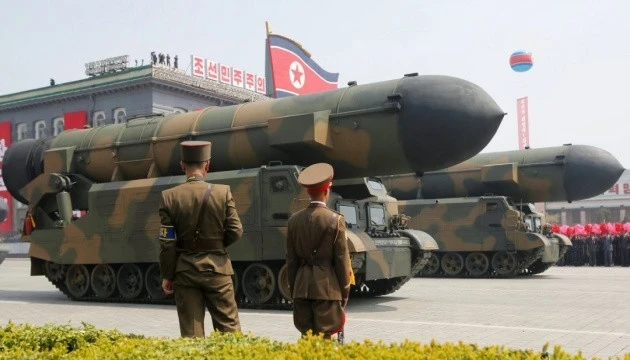
photo: socail media
North Korea possesses a significant military arsenal, bolstered over the past two decades with around 30 nuclear warheads and ballistic missiles. The Korean People's Army constitutes their armed forces, comprising Ground Forces, Air Force, Anti-Aircraft Forces, Navy, Strategic Missile Forces since 2012, and Special Tactical Forces since 2017.
The total number of active military personnel exceeds 1.1 million, with around 4 million in permanent reserve. To put it in perspective, China, the world's largest army, has 2.25 million in active service, but given their massive population of almost 1.5 billion. Military service in the Korean People's Army spans 10 years for men and 3 years for women.
Regarding equipment, a significant portion originated from the Soviet Union during the conflict with the South and later from Chinese communists. This implies that their weapons and gear are generally outdated. However, North Korea possesses substantial quantities, making it open to selling these weapons.
The specific count of military equipment in Pyongyang's possession varies, but in general, it includes:
- Approximately 3,500 medium and main battle tanks along with more than 560 light tanks.
- Over 2,500 armored personnel carriers.
- About 11,000 artillery pieces.
- More than 7,500 mortars.
- Over 2,500 MLRS.
- Approximately 2,000 anti-tank missile installations.
- 11,000 anti-aircraft artillery installations.
- About 10,000 MANPADS.
Korean artillery comprises Soviet systems such as D-30 howitzers, and BM-21 Grad, and indigenous systems like the North Korean self-propelled gun M1977, which shares ammunition with the D-30. Additionally, the MLRS BM-11 is a proprietary adaptation of the Soviet BM-21.
The DPRK boasts a substantial air fleet of around 1,100 military aircraft and helicopters. However, the majority of these are aging Soviet planes and helicopters, or their Chinese counterparts, mostly produced between the 1950s and 1970s. Some more contemporary aircraft, like the MiG-29 (approximately 35 units), are also in operation. Notably, there are 80 Harbin H-5 bombers (a Chinese version of the Soviet Il-28 bomber) and 120 Chengdu J-7s (a Chinese version of the Soviet MiG-21 fighter). The fleet also includes 30 Su-25 and 35 MiG-29 attack aircraft. Helicopters are less numerous, with just over a hundred multipurpose Mi-2s, around 50 transport Mi-4s, and 20 attack Mi-24s.
The Navy operates about 650 ships, encompassing 5 corvettes, 18 small anti-submarine ships, 40 missile boats, 134 torpedo boats, and 108 artillery boats. Additionally, there are 203 amphibious boats and over 100 submarines, albeit outdated.
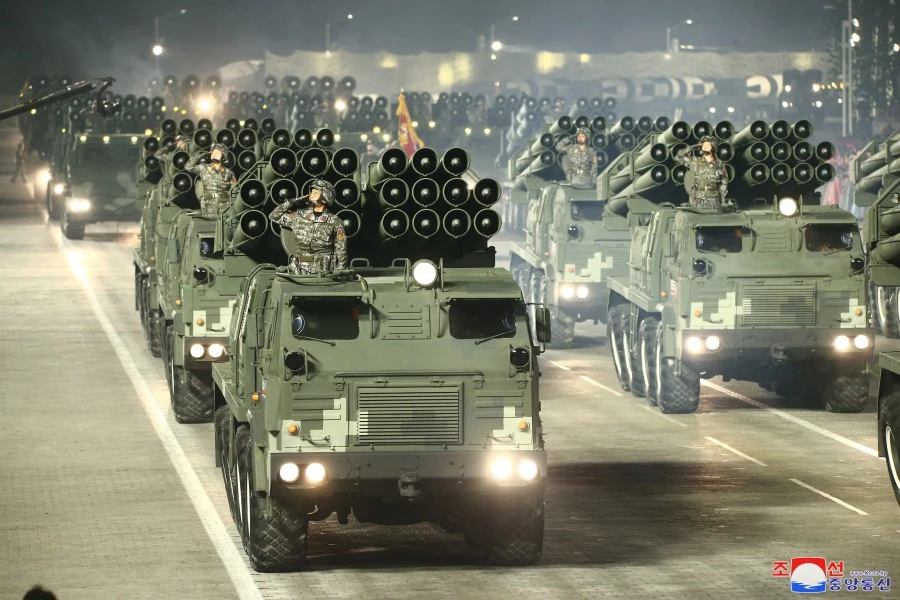
Photo: DPRK Media
North Korea manufactures its Tochka prototype, with a range of 100-120 km. It also possesses around fifty of its own "HIMARS," as termed by Russian military bloggers. These include the KN-09 (300 mm caliber reactive artillery system with a 200 km range) and KN-25 (tactical missile system reaching up to 380 km).
Additionally, North Korea produces various ballistic missiles, such as the Hwasong-5 (320 km range) and Hwasong-6 (700 km range) for short distances. The medium-range Hwasong-7 covers 1,000-1,300 km, while the Nodong-2 reaches up to 2,000 km. The Hwasong-10 spans 2500-4000 km, and the Hwasong-13 is an intercontinental ballistic missile covering 5,500-7,500 km. The primary objective of North Korea's missile program is to develop missiles capable of reaching the United States.
Despite a developed military-industrial complex and numerous weapons manufacturing enterprises, North Korea faces challenges. Although capable of producing the most necessary weapons, the country relies on the supply of high-tech equipment, spare parts for Soviet machinery, and new technologies. To address this, North Korea engages in equipment purchases from China and establishes increasingly close ties with Russia.
DPRK-Russia cooperation: Dictators unite for weapon exchange
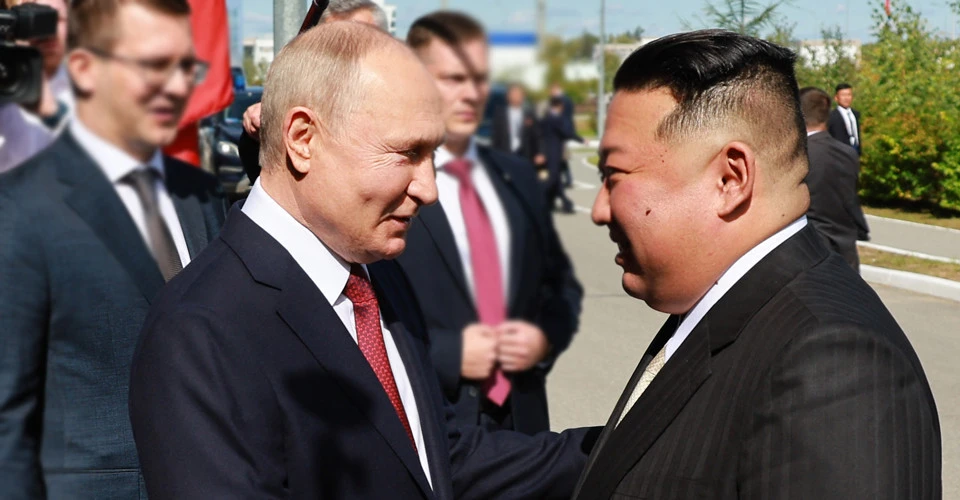
Photo: Getty Images
From its founding until the USSR's dissolution, Pyongyang saw Moscow as a key ally, arming and economically supporting North Korea. However, with the Soviet Union's collapse in 1991, the DPRK lost its main ally and crucial support. In the 1990s, both Russia and North Korea faced a prolonged economic crisis, leading to limited communication.
In the 2000s, Russian President Vladimir Putin, driven by a manic Soviet nostalgia, worked to strengthen ties with various global players, including the DPRK. The two nations engaged in joint economic projects, expanded trade relations and explored military cooperation.
North Korea consistently backs Russia on the global stage, especially regarding Ukraine. As early as 2014, the DPRK government supported Russia's controversial occupation of Crimea, Donetsk, and Luhansk. Consequently, in the summer of 2016, Ukraine's Cabinet of Ministers ended the mutual citizen travel agreement with North Korea, a measure applied automatically to all former Soviet Union countries after the USSR's dissolution.
On July 13, 2022, North Korea acknowledged the independence of the terrorist "DPR" and "LPR". In response, Ukraine condemned the move and severed all diplomatic ties with North Korea. Later, Vladimir Putin assured North Korea's leader of their commitment to expanding positive bilateral relations. On June 12 of this year, North Korea's leader, Kim Jong Un, expressed a keen interest in strengthening strategic cooperation with Russia. He emphasized the joint goal of building a powerful nation and ensuring global peace and security while holding hands with Russian President Vladimir Putin.
The pinnacle of this collaboration occurred in September 2023 when the two leaders met at the Vostochny Cosmodrome in Russia. The North Korean leader expressed optimism, anticipating that this meeting would foster unbreakable strategic cooperation between Russia and North Korea. Kim Jong Un also voiced support for what he referred to as Russia's "holy war" against the world's "collection of evil."
Despite the bold declarations, the primary focus lies on the military aspect — what is Pyongyang willing to offer Moscow? As Russia's resources diminish daily in the war with the Armed Forces of Ukraine, the essential need for North Korea is quite basic: bread, as hunger persists in the DPRK. Consequently, even a few hundred million dollars for outdated Soviet weaponry could hold significance for North Korea. While Kim Jong Un has sought Russia's assistance for the Korean space program and modern weaponry, the Russian Federation is not presently prepared to share all with its longstanding and newfound allies.
North Korean weapons for Russia: What gets transferred?
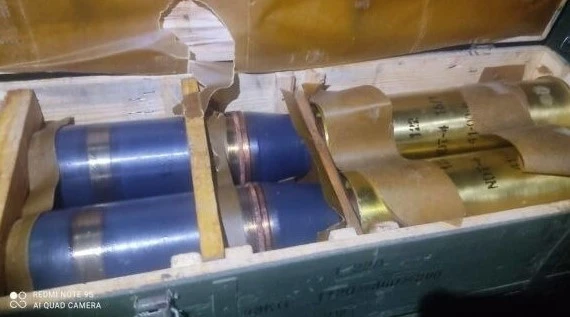
photo: Telegram
Until recently, Russia relied on its substantial internal stockpiles of Soviet weapons and, to a large extent, on Iran for replenishment. Since last summer, Iran has supplied Russia with thousands of drones, possibly short-range missiles, and other military aid. However, this year, the Russian army confronted a gradual shortage of artillery due to the rapid depletion of reserves amid the prolonged war. In many directions, the Armed Forces found themselves needing more shells than the Russians could produce on a daily basis.
Initially, North Korea supplied weapons to the Wagner PMC for the potential storming of Soledar and Bakhmut (as of 2022, according to American officials). However, after the Wagner Group’s unsuccessful uprising, the Russian command assumed direct communication with the Koreans from Prigozhin and his associates.
On July 26, Russian Defense Minister Sergei Shoigu met North Korean Defense Minister Kang Sun-nam in Pyongyang to discuss military cooperation, specifically the transfer of ammunition crucial for Russia. South Korean intelligence reveals that since early August, North Korea has sent over a million artillery shells and other weapons to Russia in ten shipments. The million ammo includes Soviet-caliber 122-mm for Grad and 152-mm for howitzers, needed by the Russians. These shells traveled about 9,000 km by rail to reach battlefields in the Donetsk, Luhansk, and Zaporizhzhia regions.
Forbes reports that Russia produces 1.5-2 million shells annually but requires an additional 10 million for the war in Ukraine. Thus, the one million ammunition supplied in three months serves as a significant extra source of income for the Russian army. Russia lacks the broad support that the Armed Forces of Ukraine have. However, unfortunately, democracies worldwide, including the EU, are falling behind in their plans for ammunition provision to Ukraine. The EU aimed to supply one million ammunition to the Armed Forces this year but has yet to do so.
In addition to artillery ammo, North Korean depots also stock a bunch of mines compatible with 82-mm and 120-mm mortars, similar to those used by the Russian military. This means that along with artillery, Ukraine is getting a significant number of mines in shipments from the DPRK.
When it comes to supplying military gear, there are uncertainties. Pyongyang isn't keen on cutting down its tank and armored vehicle numbers, as it's always gearing up for potential conflicts with South Korea, the USA, and the whole world. Sharing missile technologies is also a no-go, mirroring Russia's secrecy. Interestingly, South Korea's National Intelligence Service got wind that North Korea sent a group of rocket launcher experts to Russia in mid-October. This could signify initial steps toward building trust, not just in ammo supply but also in jointly developing military equipment. However, concrete details are still scarce.
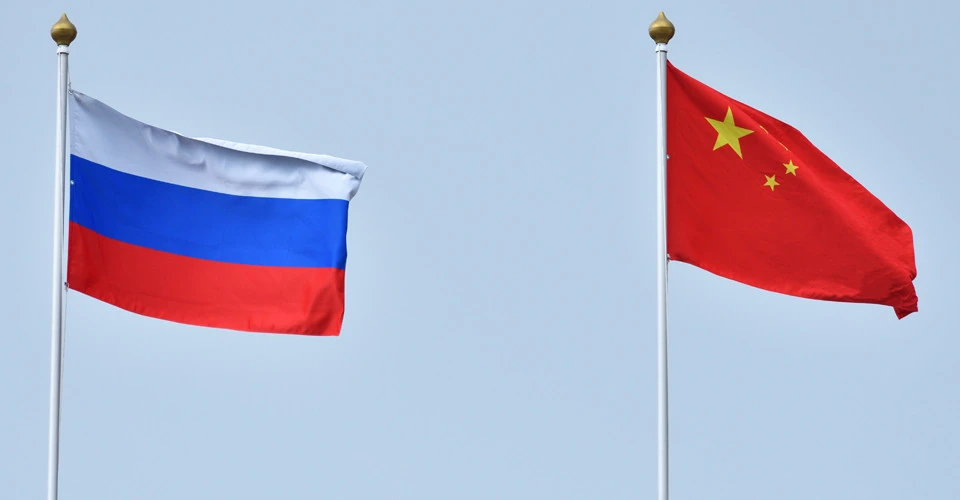
Photo: Getty Images
Moreover, there's a concern that North Korea could serve as a hub for supplying Chinese weapons to Russia. Despite China's public stance of not assisting either side, there might be undisclosed agreements facilitating the transfer of Chinese weapons to North Korea, which could then redirect them to Russia for additional payment. This potential large-scale scenario poses a genuine threat as China possesses a wide array of both Soviet-era and modern weaponry. However, significant arms shipments from China wouldn't go unnoticed by the intelligence agencies of South Korea, the United States, and Japan. Such actions could strain China's relations with the free world, leading to severe consequences for its economic and political objectives. Consequently, it's unlikely that China would take such a step. This is especially true given the reiterated statements by the Chinese leader, Xi Jinping, emphasizing China's preference for a peaceful resolution, even though it doesn't fully endorse the Ukrainian Peace Formula proposed by President Volodymyr Zelenskyy. Despite this, China has made it clear to Putin that any use of nuclear weapons would have catastrophic consequences for Moscow. Consequently, Xi Jinping is closely monitoring the actions of both the Russian Federation and North Korea, seeking an opportune moment to bolster Chinese influence.
In summary: North Korea possesses a significant arsenal of weapons, with ammunition compatible with Moscow's weapons being particularly valuable. Reportedly, one million shells and mines have already been transferred. However, it's challenging to determine how much more the Koreans are willing to sell to the Russians due to the secretive nature of the world's most closed country. North Korea's support enables the Russian Federation to sustain its brutal prolonged war in Ukraine. The coming year will reveal whether this strategy pays off for Putin, especially with upcoming elections in many democratic countries that could impact assistance to Ukraine.
- News







